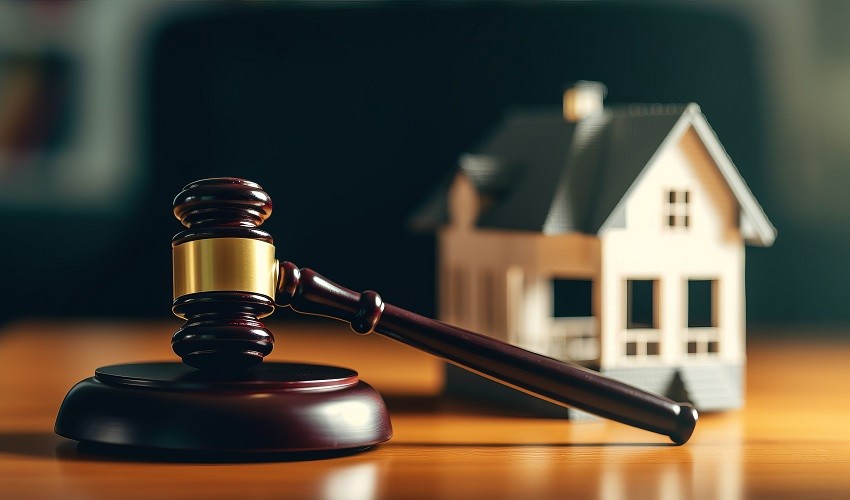I. Introduction
In the realm of real estate, the term “foreclosure” can send shivers down any homeowner’s spine. It’s a distressing situation where a lender repossesses a property due to the borrower’s failure to make mortgage payments. In such challenging times, the guidance of a foreclosure lawyer becomes invaluable.
II. Understanding Foreclosure
A. What Triggers Foreclosure?
Foreclosure isn’t an overnight occurrence; it follows a series of missed payments and warnings. Understanding the triggers is crucial for homeowners.
B. The Role of Lenders
Lenders play a pivotal role in the foreclosure process, wielding the power to reclaim the property if the borrower defaults.
C. Homeowner’s Perspective
Examining the situation from the homeowner’s perspective sheds light on the emotional and financial toll of facing foreclosure.
III. Why Hire a Foreclosure Lawyer
A. Legal Expertise
Foreclosure lawyers bring legal expertise to the table, navigating complex laws and regulations.
B. Protection of Rights
They act as guardians, ensuring homeowners’ rights are protected throughout the legal proceedings.
C. Negotiation Skills
Foreclosure lawyers are adept negotiators, exploring alternatives to foreclosure through communication with lenders.
IV. How Foreclosure Lawyers Work
A. Initial Consultation
The process typically begins with an initial consultation where the lawyer assesses the case’s intricacies.
B. Legal Analysis
Thorough legal analysis follows, helping lawyers formulate a tailored defense strategy.
C. Development of a Defense Strategy
Based on the analysis, a defense strategy is developed, aiming to thwart foreclosure through legal means.
V. Common Foreclosure Defense Strategies
A. Loan Modification
Lawyers often pursue loan modification, altering the terms to make payments more manageable for homeowners.
B. Short Sale
In some cases, a negotiated short sale might be a viable option, allowing the homeowner to sell the property and avoid foreclosure.
C. Challenging the Foreclosure Process
Lawyers may challenge the foreclosure process itself, identifying flaws and irregularities.
VI. The Legal Process of Foreclosure
A. Notice of Default
The process kicks off with a Notice of Default, signaling the initiation of foreclosure proceedings.
B. Lis Pendens
Lis Pendens is filed, indicating a pending lawsuit and affecting the property’s marketability.
C. Auction and Eviction
The final steps involve the property going to auction, potentially leading to eviction if not resolved.
VII. Benefits of Early Legal Intervention
A. Prevention of Foreclosure
Early legal intervention increases the chances of preventing foreclosure altogether.
B. Minimizing Credit Damage
Acting promptly can also minimize the long-term damage to the homeowner’s credit.
VIII. Finding the Right Foreclosure Lawyer
A. Experience and Expertise
Choosing the right lawyer involves evaluating their experience and expertise in foreclosure cases.
B. Client Testimonials
Client testimonials offer insights into a lawyer’s effectiveness and client satisfaction.
C. Cost Considerations
Understanding the cost of legal representation is essential for homeowners with budget constraints.
IX. DIY vs. Professional Legal Assistance
A. Risks of Self-Representation
Attempting to navigate foreclosure without legal assistance poses significant risks for homeowners.
B. Legal Pitfalls for Homeowners
Understanding the potential legal pitfalls can help homeowners make informed decisions about representation.
X. FAQs About Foreclosure Lawyers
A. What is the typical cost of hiring a foreclosure lawyer?
Answer: Costs vary, but they often include attorney fees and court costs.
B. Can a foreclosure lawyer stop the process entirely?
Answer: While not guaranteed, a lawyer can employ strategies to halt or delay foreclosure.
C. How long does a foreclosure defense take?
Answer: The timeline varies, but early intervention can expedite the process.
D. Are there alternatives to hiring a lawyer for foreclosure?
Answer: Yes, but the complexities of foreclosure make professional assistance advisable.
E. What are the consequences of not hiring a foreclosure lawyer?
Answer: Without legal representation, homeowners risk losing their property and damaging credit.
XI. Conclusion
In the face of foreclosure, having a dedicated foreclosure lawyer is not just a choice; it’s a necessity. Safeguarding your home and rights requires legal expertise and strategic defense. Don’t face the complexities alone; seek professional help to navigate through challenging times.





